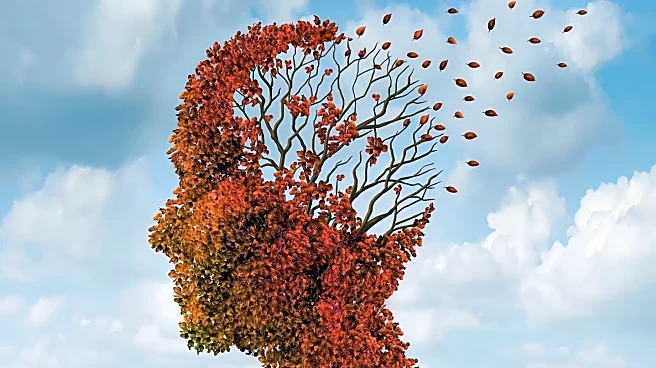What's Happening?
Dr. Juan Fortea has conducted groundbreaking research suggesting that APOE4 homozygosity could be considered a genetic cause of Alzheimer's disease. His study, published in Nature Medicine, indicates that individuals
with two copies of the APOE4 gene show Alzheimer's biomarkers at an earlier age. This research has sparked debate within the scientific community, with some researchers supporting the reclassification of APOE4 as a direct cause of Alzheimer's, while others point out the lack of diversity in study cohorts. Fortea's findings will be discussed in an upcoming webinar hosted by the APOE4 Alzheimer's Alliance, aiming to explore the genetic origins of Alzheimer's and prevention strategies.
Why It's Important?
This research could significantly impact the understanding and treatment of Alzheimer's disease, particularly for those with the APOE4 genotype. If APOE4 homozygosity is recognized as a distinct genetic form of Alzheimer's, it could lead to more targeted therapies and preventive measures for this high-risk group. The study also highlights the need for more inclusive research that considers diverse populations. The findings could influence regulatory policies, as seen with the European Union's restrictions on certain Alzheimer's medications for APOE4 homozygotes due to safety concerns.
What's Next?
The upcoming webinar will provide a platform for further discussion on the implications of Fortea's research. It is expected to address the need for population-based studies to validate the findings across different demographics. The conversation may also explore the development of personalized medicine approaches, tailoring treatments to genetic profiles to improve safety and efficacy. Stakeholders, including researchers, healthcare providers, and policymakers, will likely continue to debate the classification of APOE4 and its role in Alzheimer's disease.








